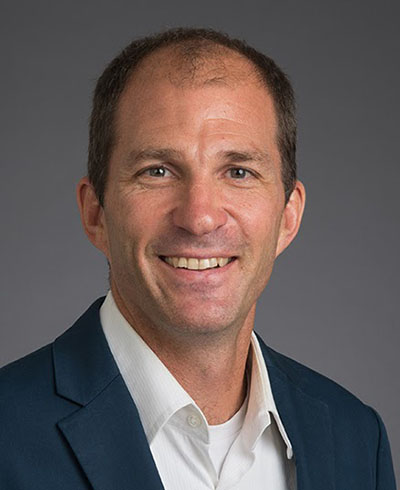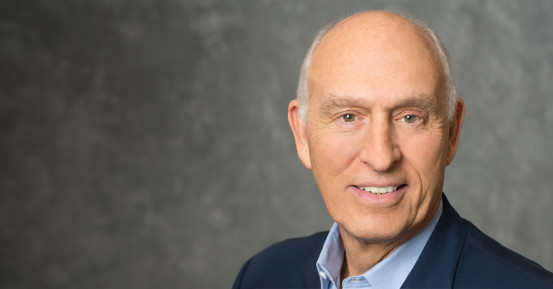Voting Boost
Election research fuels growing movement to boost voter turnout
Story by:
Media contact:
Published Date
Story by:
Media contact:
Topics covered:
Share This:
Article Content
Election research pioneered by UC San Diego political scientist Zoltan Hajnal is not only having a real-world impact in California, but is starting to take root beyond the state.
In the 2022 midterm election, voters in the Seattle region and Boulder, Colo., approved measures requiring that municipal elections be held on the same day as state or national races – a move that, according to Hajnal’s research, is expected to significantly boost turnout and broaden the electorate.
Voters in San Francisco also approved a similar measure in November, bringing the city in step with a 2015 California law designed to align the timing of local elections with state and federal contests.
Meanwhile, voter turnout in L.A.’s mayoral contest was unusually high – and the city’s first-ever synced election was seen as a major driving factor.
Hajnal, co-director of the Yankelovich Center for Social Science Research in UC San Diego’s School of Social Sciences, was instrumental in the development of the 2015 state law, or Senate Bill 415 (the California Voter Participation Rights Act). He has since testified before elected officials on the issue of synced local and national contests and has talked about his research with voting rights groups and others nationwide.
“Studies indicate that this small change in timing makes a major difference in turnout, “ said Hajnal. “Nationwide, the data indicate that even when all factors are weighed, voter turnout generally doubles when elections move from off-cycle to on-cycle contests. Plus, more voters means a more representative electorate – and that helps strengthen our democracy.”
On Nov. 8, voters in King County – the most populous county in Washington state and the home of Seattle – overwhelmingly approved a measure that phases out elections in odd-numbered years and shifts the selection of councilmembers and other municipal offices to even-numbered years, in tune with state and federal ballots.
“Nationwide, voter turnout generally doubles when elections move from off-cycle to on-cycle contests.”

Hajnal provided expertise and testified before King County officials about the positive impacts of synced elections.
Alan Durning, executive director of the Sightline Institute, a nonpartisan community advocacy group in Seattle, anticipates the change will boost voter turnout by about 60%. This, he said, “represents a massive improvement in democracy. Without Professor Hajnal's assistance, I'm not sure this change would have happened.”
In Boulder, Colo, voters by a wide margin also recently approved a measure moving all city elections to even-numbered years to align them with state and federal ballots. Before the measure was approved, Hajnal discussed his research with backers of the initiative.
Meanwhile, voters in San Francisco passed legislation in November that will move its 2023 elections for mayor, sheriff, district attorney, city attorney and treasurer to 2024 – to align with the U.S. presidential race.
In recent years, Hajnal has worked with political leaders, voting rights experts and others – from Texas to Florida to New York – who are looking for ways to broaden participation in democracy. This comes as some states have moved to restrict voting procedures.
Hajnal’s work on the issue goes back to the 1990s, when he was a researcher with the Public Policy Institute of California (PPIC), a nonprofit, nonpartisan think tank.
He surveyed city clerks across California about voter turnout, election policies and related issues and determined that the single biggest factor for predicting voter turnout on the local level was timing.
He and other PPIC researchers found that city elections held on the same day as statewide contests tend to have voter turnout rates almost double of those held separately. In addition, those casting ballots in off-cycle elections tend to be less representative of the eligible voter population, his more recent work has shown.
“The data are clear: More voters in local elections generally means a more representative set of voters,” Hajnal said. “My research shows that the move to concurrent elections makes the electorate much more representative of the community as a whole in terms of age, race, income and partisanship.”
Both Hajnal and his fellow co-director at the Yankelovich Center, political scientist Thad Kousser, are focused on addressing inequities in American democracy.
Hajnal is a professor of political science at UC San Diego’s School of Global Policy and Strategy. Kousser is a professor in the Department of Political Science in the School of Social Sciences.
Kousser’s areas of research include political disinformation and misinformation and how changes in state-level election laws are reshaping the electorate. He is part of the New Electorate Project, a statewide team of University of California scholars that has been evaluating the expansion of mail balloting, automatic registration and other voting reforms.
The Yankelovich Center at UC San Diego is dedicated to partnering with community organizations to craft practical solutions to our nation’s most pressing social problems.
You May Also Like
Stay in the Know
Keep up with all the latest from UC San Diego. Subscribe to the newsletter today.




